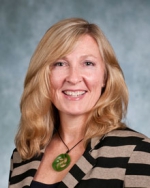“I saw a thousand dawns when I was working in the East End — a thousand fresh beginnings. Everyday a world made new. There were challenges and changes but always the sense of life forging forward — pulsing like the River Thames itself.”
I was so excited to watch the premiere of Call the Midwife. I remember reading an article in the New York Times that every Sunday evening as the clock strikes eight, the seven remaining nuns of the small Anglican order called Sisters of the Anglican Community of St. John the Divine, the real-life Nonnatus House nuns, sit in quiet contemplation. They are huddled in a circle in their shared living room to watch Call the Midwife. The Sisters share mugs of tea and plates of custard cream. Just like them, I watched with a cup of tea in my living room, and just like them I share stories of the happiness and heartbreak of midwives. The Nonnatus House nuns and nurse-midwives shared the miracle of life in London’s East End in 1959 (they are now located in Birmingham), and I sat and talked, with my husband, about my experiences as a Modern Day Midwife.
I was especially touched by this show with the topic of cystic fibrosis (CF). When I was at the early stages of my nursing career, I worked at Toronto General Hospital. I was a nurse on the Thoracic Surgery unit. We performed the very first successful long-term double lung transplant on a cystic fibrosis patient. I remember the intensity of the situation, the reporters from around the world and the feeling — very similar to birth — that this was a new dawn, a fresh beginning, and for this person life was made new.
At the conclusion of the show it states CF was, and remains, a serious lifelong condition. That knowledge is a seed that can take centuries to bloom, and that lesson unfold everywhere. I loved that it was Sister Monica Joan that had identified, from her historical readings, those first seeds of information and shared that knowledge and book with Dr. Turner so that the century old information could be put into context of new unfolding science, and Dr. Turner could make a diagnosis.
In our day and age we are blessed to be able to offer women and families the opportunity for preconception counseling or genetic counseling during pregnancy. March of Dimes is a fantastic site for more information and they list the following potential visitors who will find such resources valuable:
I located a fantastic tool when I was looking up helpful links for this blog. I have always used paper and pencil aids and was unaware of this free PC-based software. I will definitely be bringing this up at our next nurse-midwifery staff meeting at Hutzel Women’s Hospital in Detroit, Michigan! The March of Dimes and the National Coalition for Health Professional Education in Genetics (NCHPEG) and other partners have developed this tool to help providers identify patients at risk based on their family health history. Then the tool assists with clinical decision support, red flags and point-of-care fact sheets. The app helps the practitioner and the family make shared informed decisions about prenatal testing and screening options. It is called the Pregnancy and Health Profile.
In the link section below you can read more about genetic counseling from the March of Dimes and the Pregnancy and Health Profile (and you can download this app for free), learn more about living with cystic fibrosis, and — a link that is extremely important — find out how to become an organ donor.
RESOURCES
Genetic Counseling – March of Dimes
March of Dimes Medical Resources
Donate the Gift of Life – Become an Organ Donor!
 Katie Moriarty (CNM, PhD, CAFCI) is a Clinical Assistant Professor and Associate Director of the Nurse Midwifery education program at the University of Michigan. She has been a nurse-midwife since 1992. Her undergraduate degree is from the University of Windsor, and her Master’s and PhD degrees are from the University of Illinois at Chicago.
Katie Moriarty (CNM, PhD, CAFCI) is a Clinical Assistant Professor and Associate Director of the Nurse Midwifery education program at the University of Michigan. She has been a nurse-midwife since 1992. Her undergraduate degree is from the University of Windsor, and her Master’s and PhD degrees are from the University of Illinois at Chicago.
Read More About Katie | Read All Posts by Katie